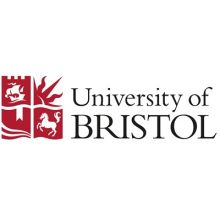
That’s how the cookie crumbles, the adage goes, and a team in fluid mechanics at the Massachusetts Institute of Technology recently wrote a paper devoted to exploring exactly how an Oreo cookie pulls apart. Its findings? You just can’t split an Oreo cleanly in half. Or as the paper’s lead author, Crystal Owens, told Vice: “In essentially all possible twisting configurations, the creme tends to delaminate from one wafer, resulting in one nearly bare wafer and one with almost all the creme.” Potential applications of the research include explaining complex principles used in fields such as 3D printing. But the researchers were also hopeful that cookies could just be the sweetener to spark broader interest in the properties of non-Newtonian fluids – and they might be on to something.
How better to spoil a sunny weekend for private school parents than with news that young George could lose a spot at Oxbridge to his less-advantaged peers? One imagines much hand-wringing after University of Cambridge vice-chancellor Stephen Toope admitted that the “premium” attached to independent schooling is in decline in the hallowed halls of the UK’s top institutions. Cambridge has already increased the proportion of state school pupils it admits – up from 68.7 per cent in 2019 to 72 per cent in 2021. Professor Toope called the gains “real progress” in an interview with The Times and said the figure would likely rise further. But he insisted that he’s no radical, down-with-the-system type. “We’re doing it by welcoming others, not by telling those people we don’t want you. Individual students who are talented, we would want them, but they’re going to be competing against an ever-larger pool.”
For all the attention that pioneers get, being one is no walk in the park. Look no further than Olivette Otele, who in 2018 became the first black woman in the UK to be appointed a full professor of history when she joined Bath Spa University. Having worked at the University of Bristol since 2019, the Cameroon-born academic has claimed that the institution had been using her as a “shield” to deflect criticism over its colonial links to slavery. Professor Otele, who was involved in a review of building names to ensure that they reflected Bristol’s values, said that her workload “became insane”, that she was not compensated for her time and that colleagues have sabotaged her reputation. Judith Squires, Bristol’s deputy vice-chancellor and provost, said the university “continues to be extremely proud” to have appointed Professor Otele and is “very grateful to her for the contribution she has made to our community”. Professor Otele has made her mind up, however, having accepted a professorship at SOAS University of London.
Opacity often drives suspicion in academic recruitment, but it was an instruction for an architect to “wait her turn” for advancement that sparked an investigation into alleged corruption at an Italian university. Clara Stella Vicari Aversa’s complaint about “rigged” recruitment at the Mediterranean University of Reggio Calabria has become the basis of a probe by Italy’s financial police, with eight members of staff – including the rector and his deputy – suspended, local newspaper Il Fatto Quotidiano reported. She alleges that the children of Calabrian politicians were among those favoured in recruitment and that university cars and credit cards were enjoyed by leadership for personal trips. The claims of corruption will be familiar to many in the region, where the blight has been shown to drive away academics, further hurting legitimate local economies. In a statement, the university’s director general said teaching and research would continue as normal during the investigation, although presumably discussions around recruitment will be even more fraught than usual.
The crisis of Covid-19 did not go to waste at Australian universities, according to a recent report that has found that institutions’ zeal for cutting staff was unconnected to the financial impacts of the pandemic. Cynics say the demolition of unloved disciplines explains the severity of the cuts, while the more charitable credit unfounded fears about a loss of international student revenues. About a third of casual staff lost their jobs as a result, compared with just 3 per cent of permanent and contracted staff. The analysis, by former University of Melbourne deputy vice-chancellor Frank Larkins, found that seven universities shed staff despite strengthening their financial positions. He writes that some used “the uncertain and unpredictable environment” as a chance to make changes “not primarily directly driven” by financial necessity. Expect to hear his words whispered in debate along Australia’s quietened university corridors.
Register to continue
Why register?
- Registration is free and only takes a moment
- Once registered, you can read 3 articles a month
- Sign up for our newsletter
Subscribe
Or subscribe for unlimited access to:
- Unlimited access to news, views, insights & reviews
- Digital editions
- Digital access to THE’s university and college rankings analysis
Already registered or a current subscriber? Login





